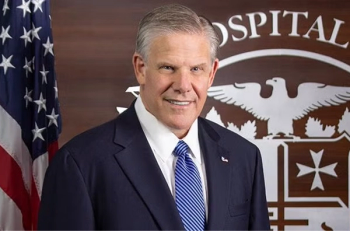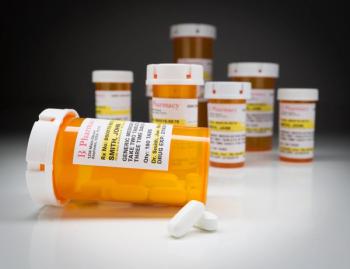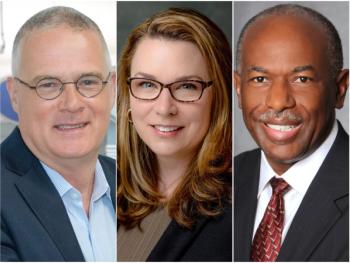
Supreme Court ruling on EPA authority carries ramifications for public health
The American Medical Association said the court’s decision improperly curbs efforts to fight climate change and harms the public. More broadly, some suggest it could limit the scope of all federal agencies.
The U.S. Supreme Court issued a ruling that critics say improperly limits the Environmental Protection Agency’s ability to fight climate change and could harm public health.
Some analysts also say the ruling could potentially set a precedent to restrict the authority of the federal government, including healthcare agencies.
With
- Related content:
Hospitals wrestle with Supreme Court ruling on abortion
Writing for the majority, Chief Justice John Roberts wrote, “Capping carbon dioxide emissions at a level that will force a nationwide transition away from the use of coal to generate electricity may be a sensible ‘solution to the crisis of the day.’”
“But it is not plausible that Congress gave EPA the authority to adopt on its own such a regulatory scheme,” he wrote, adding, “A decision of such magnitude and consequence rests with Congress itself, or an agency acting pursuant to a clear delegation from that representative body.”
Justice Elena Kagan wrote in her dissenting opinion that the court incorrectly supplanted the EPA's authority.
“The Court appoints itself—instead of Congress or the expert agency—the decision-maker on climate policy," Kagan wrote. "I cannot think of many things more frightening.”
- Related story:
After Supreme Court upends Roe v. Wade, medical schools weigh impact on training doctors - Related story:
HHS secretary announces steps after abortion ruling, warns providers to protect patient privacy
‘Major health implications’
Jack Resneck, president of the American Medical Association, condemned the court ruling.
“Regulating and reducing greenhouse gas emissions is critical for combating the climate crisis and its major health implications, impacting the respiratory, cardiovascular, and immune systems of the US population, with minoritized populations disproportionately impacted,” Resneck said in a statement. “The AMA has declared climate change a public health crisis that threatens the health and well-being of all people and supports policies that reduce US greenhouse gas emissions aimed at carbon neutrality by 2050."
“As physicians and leaders in medicine, we recognize the urgency of supporting environmental sustainability efforts to help halt global climate change and the devastating health harms that it is sure to bring," he said.
The court’s ruling, significant as it is on climate change, could have wider repercussions throughout the federal government.
In the majority opinion, Roberts calls it a case involving the concept of “major questions,” an idea that Congress must give a federal agency specific authority to make sweeping policy decisions with significant economic consequences.
In an analysis of the ruling, Amy Howe of
“Roberts’ full-throated embrace of the major-questions doctrine – a judicially created approach to statutory interpretation in challenges to agency authority – likely will have ripple effects far beyond the EPA,” Howe wrote. “His reasoning applies to any major policymaking effort by federal agencies.”
Robert Reich, former U.S. secretary of labor under former President Clinton, wrote on
U.S. Sen. Ted Cruz, a Texas Republican,
Some analysts said the court’s ruling makes it more difficult for the EPA to regulate emissions but it doesn’t completely negate the agency’s authority.
Richard Revesz, a professor at the New York University School of Law, called the ruling “a significant setback for environmental protection and public health safeguards.” But he said the EPA still can regulate greenhouse gases.
“The EPA still has avenues to address power sector greenhouse gas emissions, which it must do to meet its statutory obligations to regulate air pollutants that adversely affect public health and welfare,” Revesz said in a
Still, some are worried about the broader impact of federal agencies aiming to enact their own regulations.
U.S. Jerry Nadler, a New York Democrat, said in a statement the ruling “invites spurious and politically motivated legal challenges to well established statutes and regulatory standards, and will have ripple effects far beyond this case.”
“Strong regulations are key to protecting public health and safety, promoting a stronger economy, and safeguarding the environment, especially for the predominantly Black, Brown, and Indigenous communities that are on the frontlines of the climate crisis and are already disproportionately affected by a warming planet,” Nadler said in a statement. “There can be no doubt that our nation’s food supply, financial markets, and healthcare systems will all become less safe because of this holding.”
U.S. Rep. Ritchie Torres, a New York Democrat, also said he feared the ruling will do more than restrict the EPA’s ability to limit emissions.
“There may be no decision in recent memory that will do more to cripple the federal government’s ability to protect the health and safety of every American than the Supreme Court’s decision in West Virginia vs EPA, which represents judicial malpractice,” Torres said in a statement.
‘Court substitutes its own ideas’
Kagan in her dissent argued the court is improperly taking the place of the EPA in its authority to set and enforce policy.
“Evaluating systems of emission reduction is what EPA does,” Kagan wrote in her dissent. “And nothing in the rest of the Clean Air Act, or any other statute, suggests that Congress did not mean for the delegation it wrote to go as far as the text says.”
“In rewriting that text, the Court substitutes its own ideas about delegations for Congress’s,” Kagan wrote. “And that means the Court substitutes its own ideas about policymaking for Congress’s. The Court will not allow the Clean Air Act to work as Congress instructed. The Court, rather than Congress, will decide how much regulation is too much.”
The ruling follows a number of recent Supreme Court decisions affecting healthcare in the United States.
Most notably, the court ruled last week that Americans don’t have a constitutional right to abortion. About half the states are expected to enact laws barring abortion, and some states have already taken that step.
The court also upheld a nearly two-decade Medicare policy involving
Earlier this month, the high court unanimously struck down Medicare cuts to hospitals participating in






























